Ma Ka Hana Ka ʻIke: In Working, One Learns
Key Points
-
Ma Ka Hana Ka ʻIke provides youth in the Hawai’i community a way to learn that makes sense to them and builds their self-esteem.
-
Youth in Hāna, Maui have the power to change their future and positively impact their community through farming, perpetuating culture and lifeways, and providing safe, stable spaces for fellow community members.
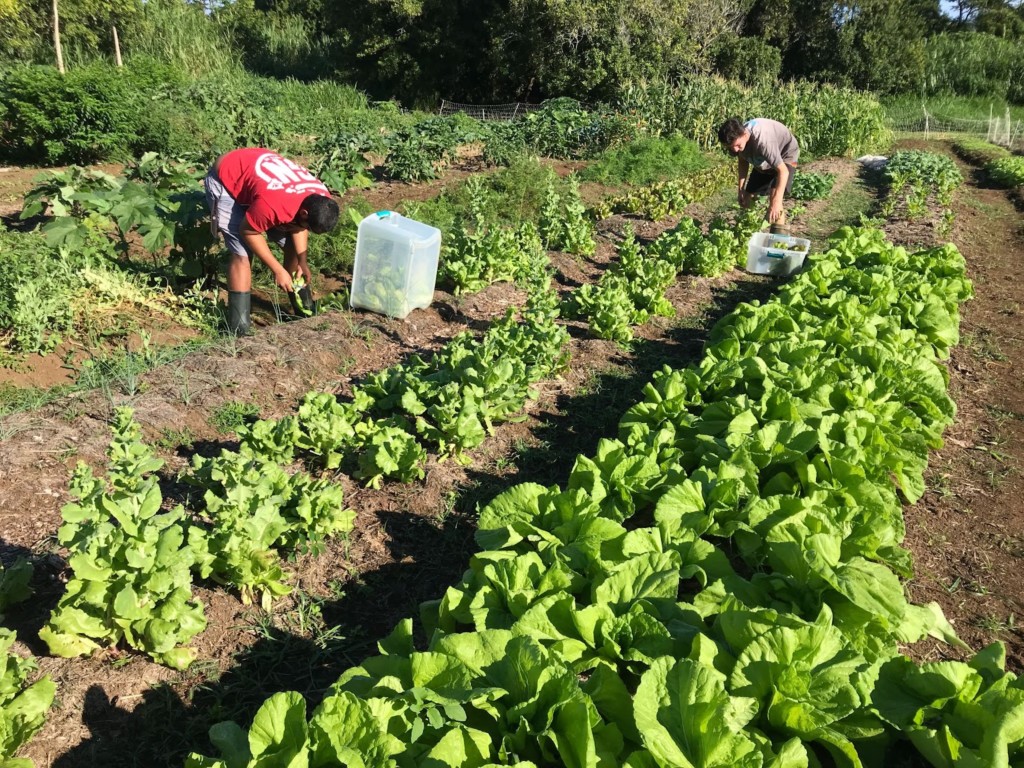
By: Hauʻoli Kahaleuahi and Lipoa Kahaleuahi
Kamanu Lind is a father, husband, 4th generation farmer, and recently-appointed farm manager at Mahele Farm, Ma Ka Hana Ka ʻIke’s fully-operational organic farm in Hāna, Maui.
Kamanu began his journey with Ma Ka Hana Ka ʻIke, an award-winning vocational training nonprofit for youth and graduates of our programs, back in 2014 as a student apprentice at the farm.
Ma Ka Hana Ka ʻIke’s student apprentices range in age between 14 and 18, and span across our core program areas: Building & Construction, Mahele Farm, and Mālama Hāloa.
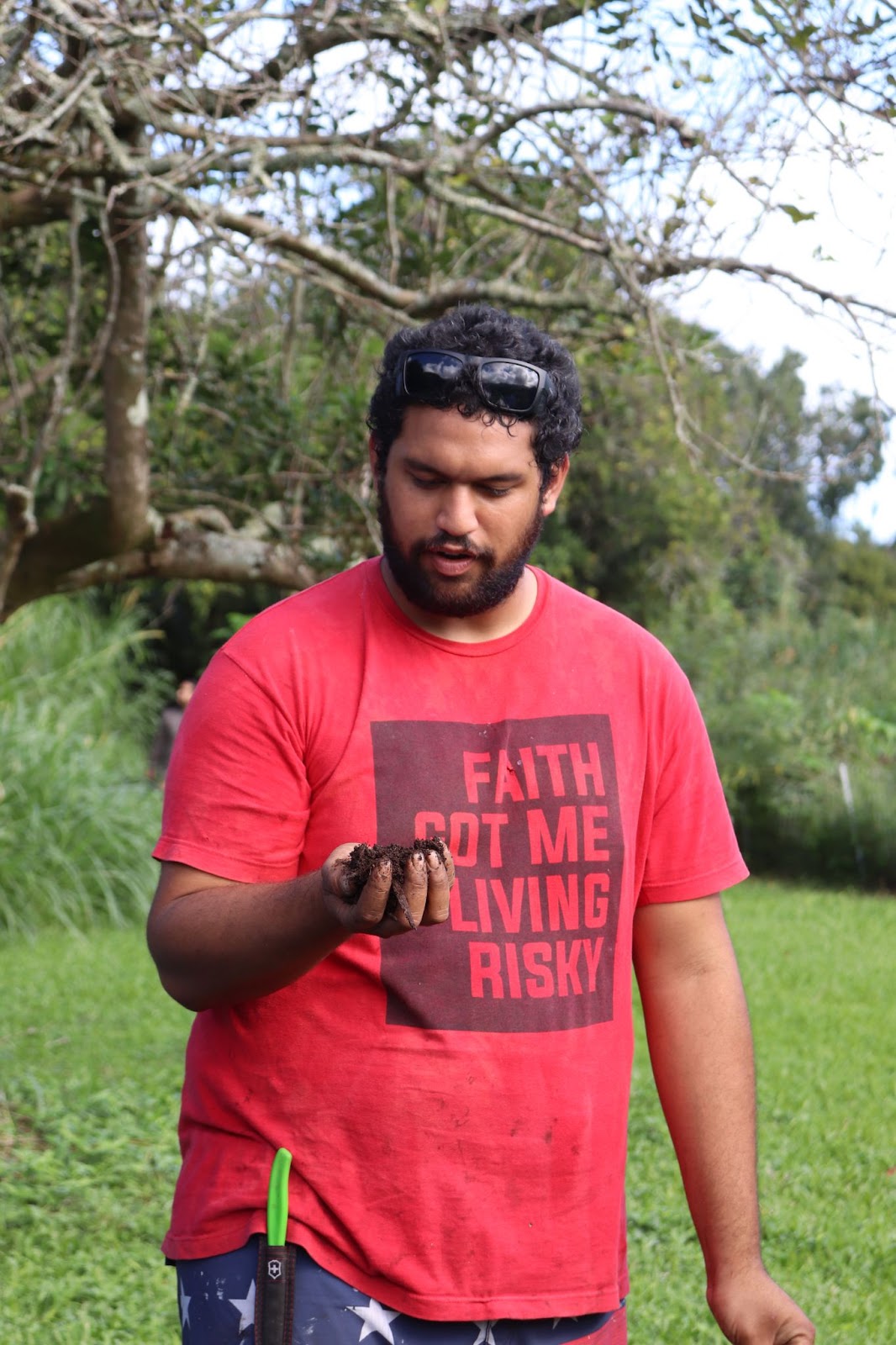
Students within Building & Construction gain experience in woodshop class and receive training in community-based construction projects, such as tiny homes and cottages for the elderly, alternative energy systems, educational facilities for Hāna School, and other urgent community needs that arise.
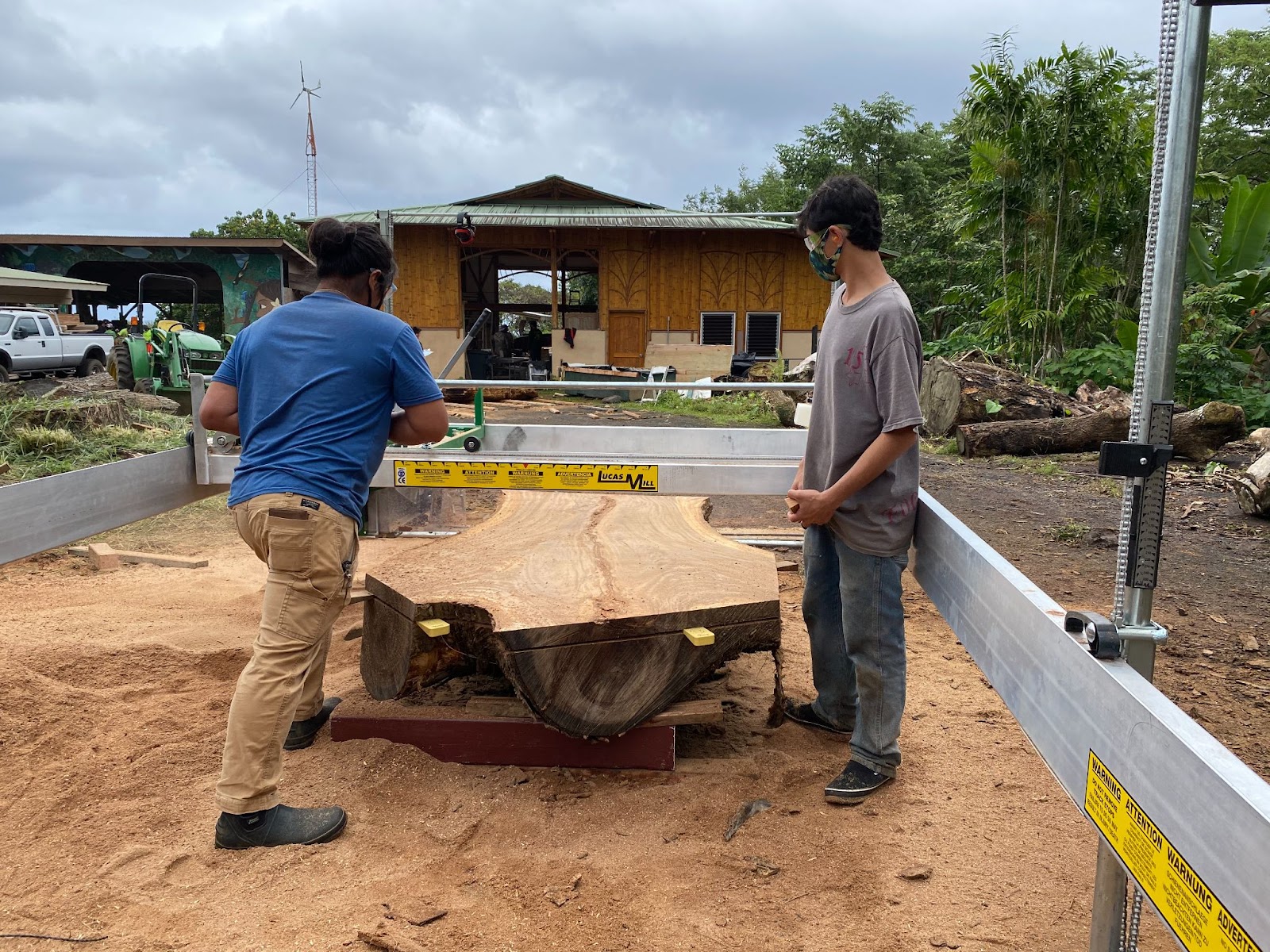
Students at Mahele Farm learn soil sciences, planting and harvesting cycles, food safety and produce distribution practices, and other sustainable land management and agriculture methods. The farm produces approximately 2,000 pounds of produce each month, 100% of which is distributed to our local community here in East Maui.
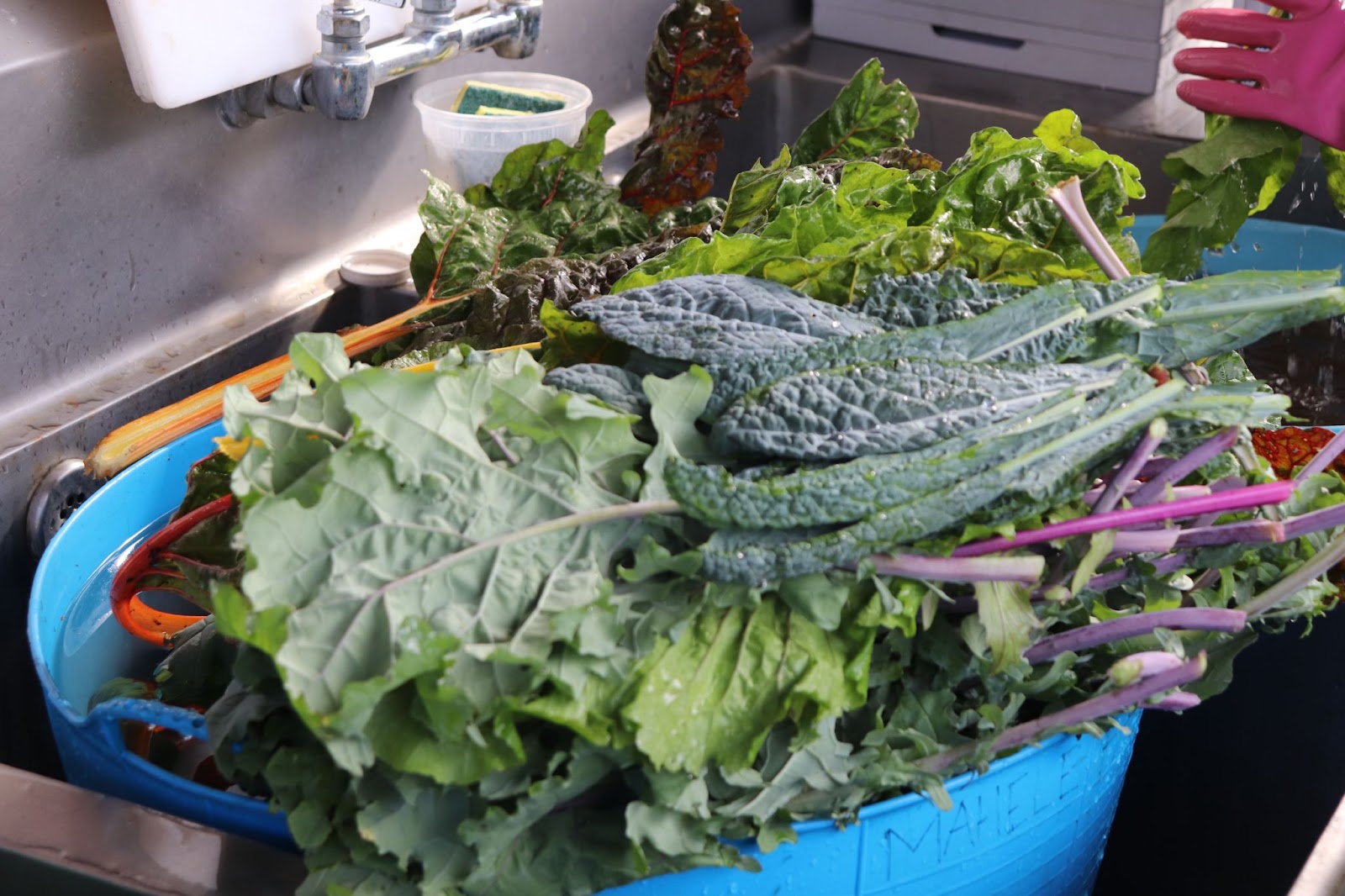
Students within Mālama Hāloa become reconnected to Native Hawaiian foods, like kalo (taro), and the cultural practices surrounding them. Students also gain experience in the protection and restoration of loʻi kalo (wetland taro fields), and the development and implementation of culture-based educational activities for their peers at Hāna School.
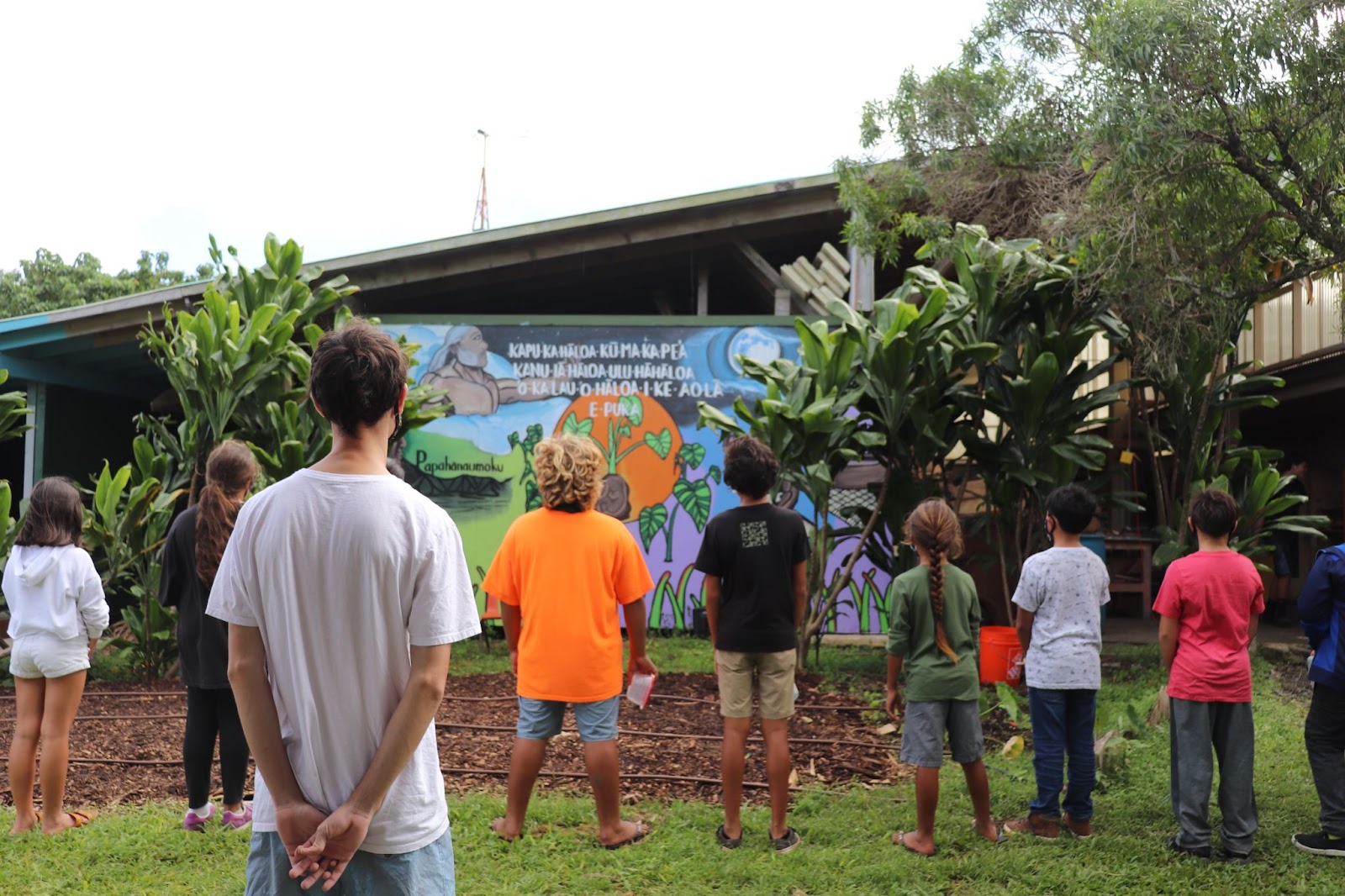
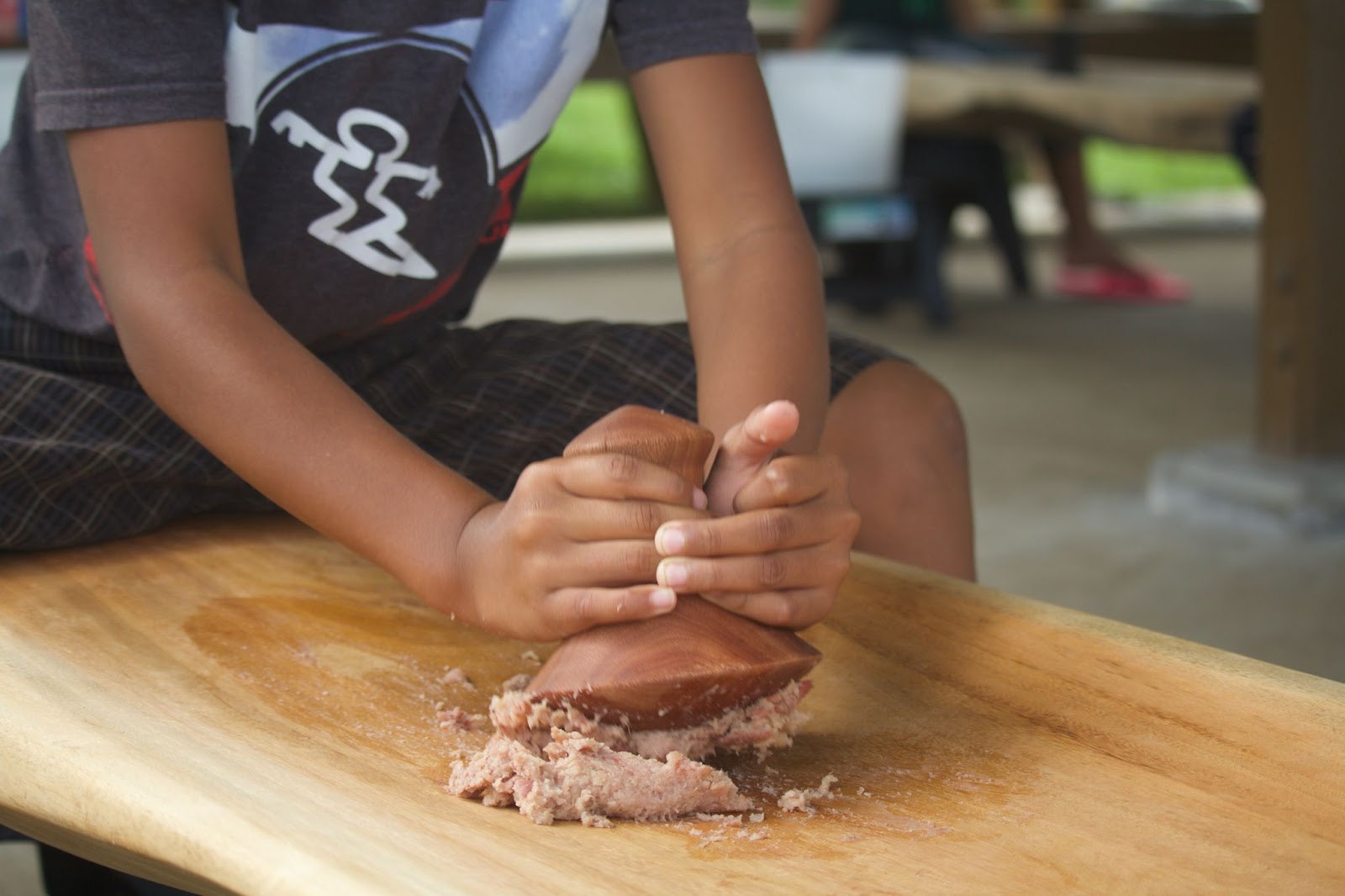
With the knowledge and hands-on skills attained through student apprenticeships, youth in Hāna have grown and developed into full-time graduate apprentices and graduate teachers across our program areas. They begin mentoring and empowering up-and-coming student apprentices, continuing the cycle of teaching academic subjects through real-life, hands-on application.
Like student apprentices before him, Kamanu evolved within Ma Ka Hana Ka ʻIke. Following his student apprenticeship at Mahele Farm, Kamanu decided to transition into the Mālama Hāloa program, which launched in 2015.
Kamanu became a graduate apprentice, then a graduate teacher, and finally a manager within this program. He led culture-based activities on campus, like teaching the practice of pounding steamed kalo into poi or paʻiʻai (kalo mixed with water creates poi and kalo pounded without water creates paʻiʻai). Kamanu’s leadership helped expand our organization’s intentional efforts to increase students’ and families’ access to these sacred traditional plants and foods.
Fast forward to about one year ago, Kamanu felt the pull of returning to Mahele Farm, and a second managerial position was opening up. Kamanu was prepared to be an ambassador for the farm’s mission.
Today, Kamanu is a Mahele Farm Manager, working closely alongside Mikala Minn, Mahele Farm Program Manager.
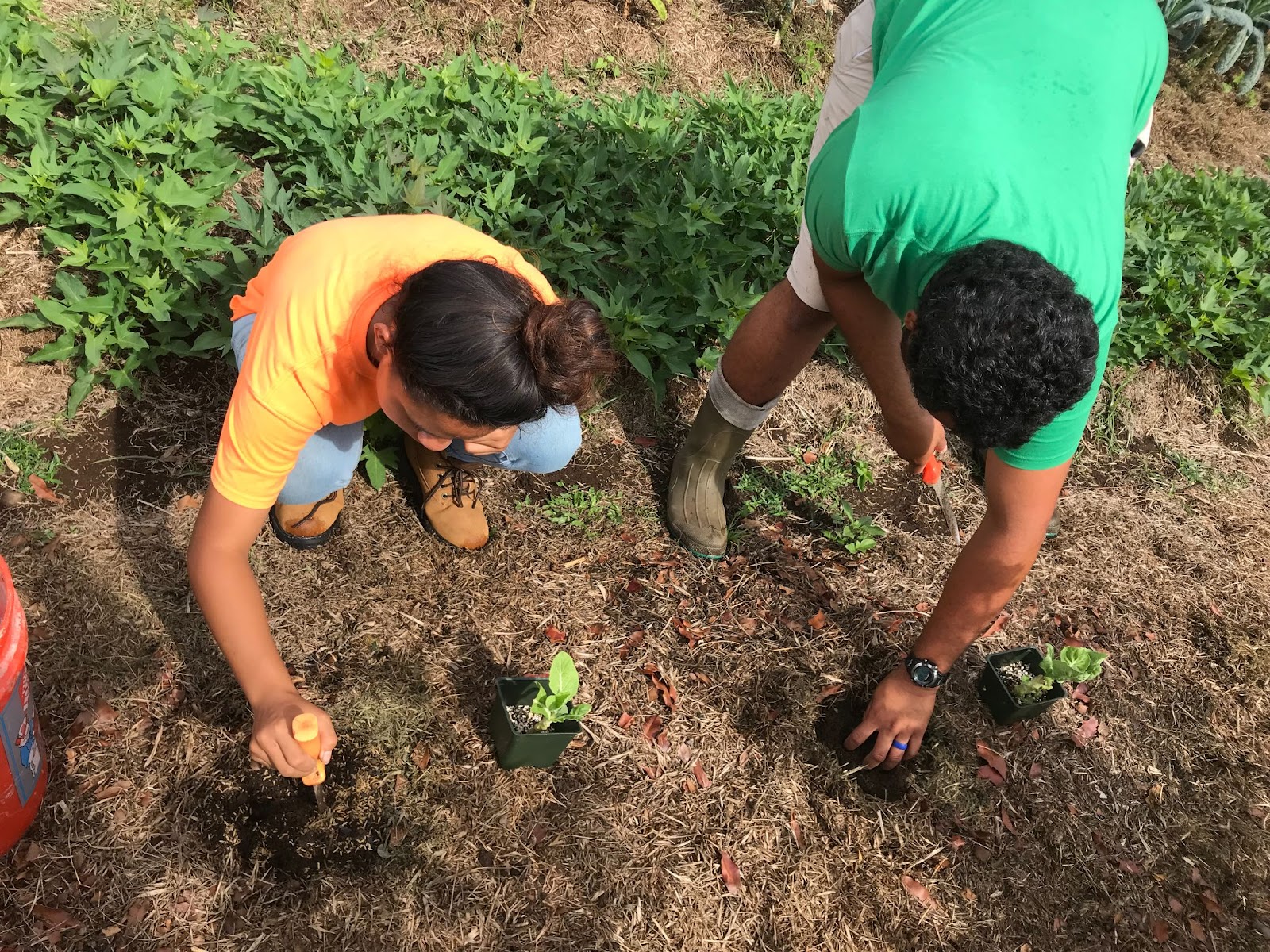
There is an ʻōlelo noʻeau, Hawaiian proverb or saying, “ʻAʻohe pau ka ʻike i ka hālau hoʻokahi.” This translates to, “All knowledge is not taught in the same school” and “One can learn from many sources.” At Ma Ka Hana Ka ʻIke, we know this to be true.
Youth of Hāna who participate in and evolve throughout our programs are gaining knowledge and skills from diverse sources outside of the four walls of a classroom. They are growing into farmers feeding our community, carpenters building stable housing for our people, and cultural practitioners preserving our heritage and traditions.
About Ma Ka Hana Ka ʻIke:
Ma Ka Hana Ka ʻIke is an award-winning vocational training program for K-12 youth and graduates of our programs in Hāna, Maui—an isolated community on the island’s east coast with over two-thirds its population of Native Hawaiian ancestry.
Our approach is to teach academic subjects through real-life, hands-on application, where students can understand the concepts they’re learning through tangible examples. Our projects meet real school and community needs, so our students’ education immediately serves those whose lives it touches.
Self-sustenance, community relationship, cultural connection—these are some of the principles we aim to pass onto the next generation, as we create caretakers of our future, leaders of our island.
Hauʻoli Kahaleuahi is the Community Outreach Coordinator and Lipoa Kahaleuahi is the Executive Director at Ma Ka Hana Ka ʻIke.



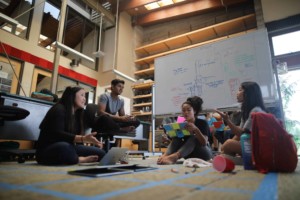
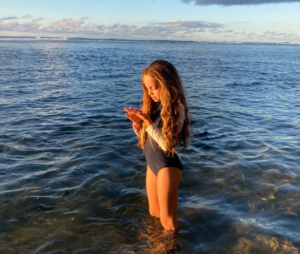
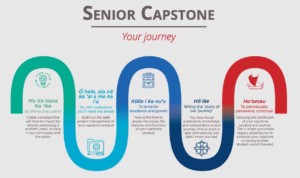
0 Comments
Leave a Comment
Your email address will not be published. All fields are required.